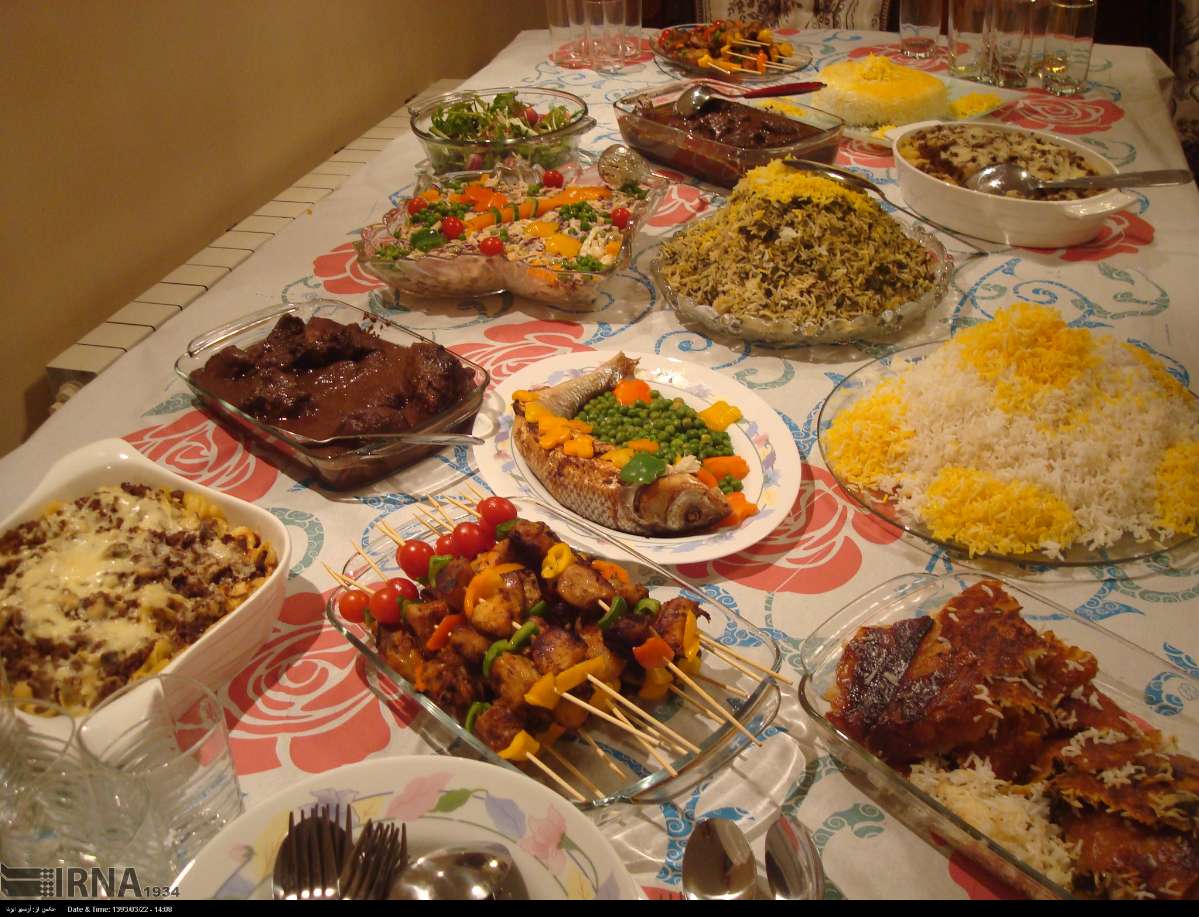 Tehran, June 12, IRNA - Bonab in northwestern province of E. Azarbaijan is to hold a kebab festival, said the head of Bonab Cultural Heritage, Handicrafts and Tourism Department.
Tehran, June 12, IRNA - Bonab in northwestern province of E. Azarbaijan is to hold a kebab festival, said the head of Bonab Cultural Heritage, Handicrafts and Tourism Department.
Behnam Rahimzadeh said that the festival will be held in cooperation with Bonab Municipality and other provincial officials in the current Iranian year (ending March 2015), according to the English-language newspaper ?Iran Daily? published Thursday.
“The city’s officials seek to register Bonab Kebab on UNESCO’s World Heritage List,” Rahimzadeh said.
It is a good initiative to introduce local cuisines via festivals.
Iran has diverse foods. There are falafel (traditional Middle Eastern food) shops in Ahvaz, southwestern province of Khuzestan. They also serve samboseh (mini crispy tortilla wraps) and pickles.
Bushehr’s qalieh mahi (fish and vegetable stew) and Bandar Abbas’ salted fish are delicious cuisines of Persian Gulf coastal areas.
The southern province of Fars is renowned for its baslogh (a kind of cookie made of sugar, starch and walnut pieces) and kalam polo (meatballs, herbs, kohlrabi fries and rice).
The people of Zanjan hold a potage festival annually to compete with Ardebil’s aash-e doogh (a potage made of sour yogurt, legumes and vegetables).
According to Mohammad Sharif Malekzadeh, the former head of Iran’s Cultural Heritage, Handicrafts and Tourism Organization, the country has over 2,500 cuisines.
“However, nobody has conducted comprehensive research in this regard yet. It takes time to gather data about all local cuisines,” he said.
Many tourism centers of Iran, including traditional houses or restaurants, don’t serve the local cuisine. They only have different types of meat and chicken kebabs with polo (rice). This is while many fast foods only serve pizza and sandwich.
One of the problems of accommodation centers and traditional restaurants in the central city of Yazd is that they seldom serve local cuisine.
Seifollah Amraie, manager of Mehrayeen Yazd Restaurant, said if hotels and big restaurants have more guests and customers from other cities, they will put local cuisines on their menu.
However, small restaurant don’t do this because a majority of their clients are locals who eat traditional cuisines such as shooli (a local soup) and qaymeh yazdi (mutton stew with rice) only at home.
Ahmad Farahani, a hotelier in Fars province, said, “Once ICHHTO obliged restaurants to include local cuisines in their menus. However, because of few customers, local foods were not eaten or the tourists preferred to have local foods besides the main course. “
Ali Asghar Mir-Ebrahimi, the head of Iran Restaurant Owners Association, said there should be supply and demand.
“If tourists demand local cuisines, restaurant owners will certainly add it in their menus,” he added.
“Currently, local cuisines have been publicized in the cities of the northern province of Mazandaran, but it is rare in other provinces.”
Mir-Ebrahimi proposed that in addition to publicizing tourism attractions, ICHHTO and municipalities should introduce traditional restaurants and local cuisines at the entry points of cities.
At present, other countries are promoting food or culinary tourism. Experiencing the food of a country, region or area is now considered a vital part of tourism industry.
“Dining out is common among tourists and food ranks alongside climate, accommodation and scenery in importance to tourists,” he said.
Food tourism is defined by the World Food Travel Association as the pursuit of unique and memorable eating experiences.
Iran, in lights of its diverse and delicious cuisines, can have a flourishing food tourism sector. At least, for domestic tourists, this should be publicized through food festivals.
Iranian restaurants abroad, usually serve kebabs, abgoosht (lamb soup) and stews such as qormeh sabzi.
Najab Daryabandi in his famous cookbook wrote that Iranian, Western and Chinese cuisines are three distinct schools of cooking worldwide.
By IRNA
The Iran Project is not responsible for the content of quoted articles.

 QR code
QR code